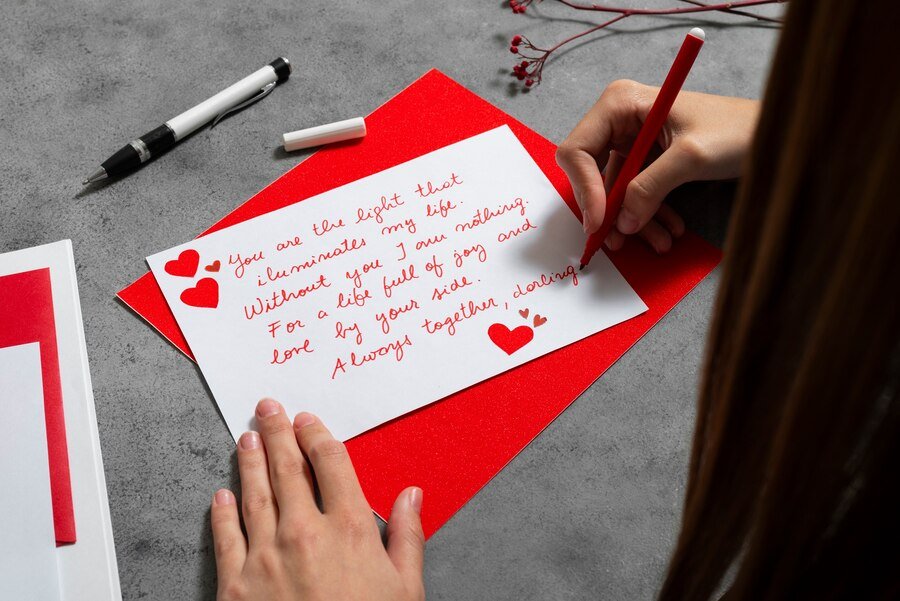Writing a letter to a spouse who has caused you pain can feel like an insurmountable task. However, expressing your feelings through words can offer healing and clarity. It allows you to be open, honest, and direct about how you feel, while also giving your husband the space to reflect on his actions. In this article, we explore how to approach writing such a letter, and why this act could be the first step in restoring your relationship.
Acknowledge the Pain
The first thing you must do is fully acknowledge and embrace your pain. It can be tempting to suppress your hurt feelings, especially if you’re trying to protect your husband or avoid confrontation. But remember, for healing to happen, it is crucial that you allow yourself to feel and express your emotions.
Writing the letter gives you the chance to be honest about how deep the hurt runs. Whether it was a specific event or an ongoing issue, start by describing how you felt in response to his actions. Did his words leave you devastated? Did his behavior make you feel ignored or unappreciated? Recognizing these feelings is the first step in any healing process.
Expressing Your Hurt Without Accusation
In your letter, aim to convey your pain in a way that focuses on your feelings, not solely on accusing or blaming him. The goal is not to attack but to share how his actions affected you. This will help avoid the defensive barriers that can arise when accusatory language is used.
For instance, instead of writing, “You hurt me when you ignored me,” you could frame it in a way that reflects how it made you feel: “I felt so alone when it seemed like you weren’t present with me.” This type of language is less confrontational and more about your emotional experience, which encourages your husband to listen more openly.
Recognize the Impact of His Actions
When writing the letter, it is important to express how his actions have affected your emotional well-being, your self-esteem, and your trust in the relationship. Doing so can help him understand the long-term consequences of his behavior and the emotional toll it has taken on you.
You might write about how his actions disrupted your sense of security, how trust has been shaken, or how communication has become harder. But be clear: this isn’t to guilt him, rather to make him aware of the depth of your emotional hurt. Ultimately, this part of the letter should focus on the weight of his behavior without coming across as bitter or resentful.
Speak Your Truth with Honesty
Being truthful in your letter is vital. Do not shy away from sharing your honest feelings just because they are difficult to voice. With that being said, avoid using overly harsh or inflammatory language. Try not to speak from a place of anger, but from one of clarity and emotional authenticity.
Honesty also means writing from a place of reflection. It is okay to express your confusion, frustration, and sadness, but try not to simply dwell in negativity. Instead, use honesty as a stepping stone for growth. Let him know that while the hurt may be hard to process, you want to move forward in a constructive and meaningful way.
The Role of Forgiveness and Moving Forward
While forgiveness can seem daunting, it is a significant theme in any letter to a spouse who has hurt you. Acknowledging that you are working towards forgiveness doesn’t mean that you forget what happened, but it reflects your desire to rebuild trust and move on. For example, “I am struggling to forgive, but I want to try, because I still believe in us” is a powerful statement.
Forgiveness should always come from a place of self-care rather than being forced. By admitting that you’re willing to forgive and work on the relationship, you show not only kindness to him but also to yourself, as forgiveness can aid in emotional healing.
Highlighting What You Need
The letter should include clear communication about what you need from him moving forward. Maybe it’s more respect, better communication, or simply more patience. By addressing your emotional needs, you help him understand how he can contribute to your healing process.
For instance, “I need more honest conversations with you” or “I need you to show me that you value me” can be simple yet impactful statements to include. This isn’t a time to beat around the bush or make vague requests—be as specific as possible about what changes you’d like to see.
Being Open to Dialogue
In the letter, invite him to respond openly, offering a way for both of you to start the healing conversation. This shows that the letter is just the beginning, not the final word. It’s an invitation to engage in a dialogue about what went wrong, how it can be corrected, and how both of you can work on strengthening the relationship.
By approaching him with openness, you create space for understanding and resolution, and you emphasize that the problem isn’t his alone, but something for both of you to address together.
Exploring What You Both Can Learn
Your relationship can become a powerful learning opportunity if both of you choose to grow from this experience. In the letter, consider asking for a mutual understanding and growth process. Suggest that this pain be a lesson, one that could allow both of you to heal and grow as individuals and as partners.
It’s also helpful to reflect on your own personal growth in the letter. What do you think you could do better in the relationship? What role did you play in the breakdown of communication, and what are you willing to improve for the future? When both partners are ready to learn from mistakes, relationships can find stronger, deeper footing.
Focusing on Trust and Rebuilding Connections
Trust is the foundation of every healthy relationship, and once it’s broken, it can feel impossible to repair. Your letter should acknowledge this delicate issue, recognizing that trust may be severely damaged, but is not beyond recovery.
Use your letter as an opportunity to ask for a fresh start. Tell him what actions or behaviors you’d need to see for trust to be rebuilt between you both. Trust may take time to heal, but sharing how it impacts your connection can guide you toward solutions and help you both understand that it won’t be instant, but it is possible.
The Path Toward Healing Together
To heal together, both of you will have to show a willingness to make changes. Your letter can include small but intentional requests that outline steps for moving forward as a couple. For instance, you might express a desire for more quality time together or say you’d like to see counseling for both of you.
Couples often get stronger after going through hard times—provided both partners are ready to address the challenges together. Starting that process in writing is a fantastic first step, and it could potentially open the door for a renewed sense of togetherness and understanding.
Incorporating Self-Care Into Healing
While your letter’s primary focus should be on your relationship, don’t forget about yourself during this process. Reflect on what you can do to nurture your own healing journey. Engage in self-care practices, hobbies, and other activities that help you heal as an individual as you process the pain from your marriage.
Your growth and happiness shouldn’t solely be dependent on your spouse; taking charge of your own well-being ensures that even in difficult times, you remain strong and centered.
Final Thoughts
Writing a letter to your husband who has hurt you isn’t just about giving voice to your pain. It’s about initiating a deeper conversation and giving both of you the space to reflect, understand, and ultimately grow. Though it may feel hard, it’s often these tough moments that ultimately forge stronger bonds.
By laying the emotional groundwork in your letter, you make it easier for both of you to address the issues head-on and, potentially, rebuild what was lost. The key here is honesty, empathy, and commitment to healing—not just for the relationship but for yourself as well.

Frequently Asked Questions
How do I start a letter to my husband who hurt me?
Start by being honest and open about your emotions. Begin with acknowledging the hurt and describing your feelings without placing blame.
Should I focus more on my emotions or the actions?
Both are important. Balance discussing how his actions affected you while also expressing your emotions.
Can a letter really help in rebuilding trust?
Yes, a heartfelt letter opens up a dialogue about issues that may be difficult to discuss in person and encourages mutual understanding.
How can I forgive after betrayal?
Forgiveness takes time and self-care. Express your desire to forgive in the letter, but understand that it may be a gradual process.
What do I do after sending the letter?
Give him space to reflect and respond. Be open to his feelings, and consider counseling or therapy to support both of you during this time.











